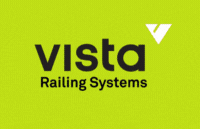
How many times have you gone through the hiring process, set up a new worker in the schedule, then waited on Monday morning for them not to show up? You are not alone.
A study by the Canadian Federation of Independent Business has determined that small businesses across Canada are dealing with this growing trend in the hiring process. More than one-third of small business owners said they’ve hired people over the previous 12 months who never showed up or stopped coming into work shortly after starting. If that isn’t concerning enough, some job candidates stopped responding before they even got the job, said 37 percent of respondents, who found that job seekers failed to reply to requests for interviews or further information that would have secured them a job.
“Employers are already having an incredibly hard time filling certain positions. Ghosting is not only a frustrating waste of their time, but it’s a big drain on their already limited resources,” said Dan Kelly, president of the CFIB. “Job candidates and employees don’t have to take or stay in jobs they don’t like, but they should at least communicate their intentions clearly to their employer instead of leaving them scrambling and wondering.”
Shortages of skilled, or semi-skilled and unskilled, labour continue to limit business growth for 53 percent and 38 percent of businesses, respectively, according to the latest CFIB Business Barometer. Over half (52 percent) of small businesses have yet to return to normal revenue levels and 58 percent haven’t repaid their pandemic debt.
The CFIB has speculated that many unemployed persons are happy to remain on EI and apply for jobs even though they have no desire to get hired. As the federal government is working on potential reforms to the Employment Insurance system, the association has urged Ottawa to take into consideration the impact of potential EI changes on small businesses.
“We’re hearing from business owners who have experienced ghosting that some candidates prefer to stay on EI for as long as possible and may be applying for or taking jobs just to satisfy the requirements of the program,” added Kelly. “While the vast majority of EI recipients may be looking for work in good faith, any changes the government is considering making to the program should not disincentivize people from accepting or starting jobs, especially with the current labour shortages we’re experiencing.”




































